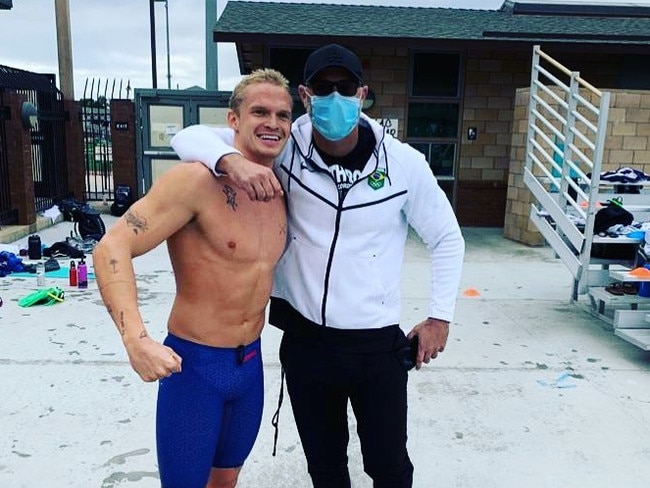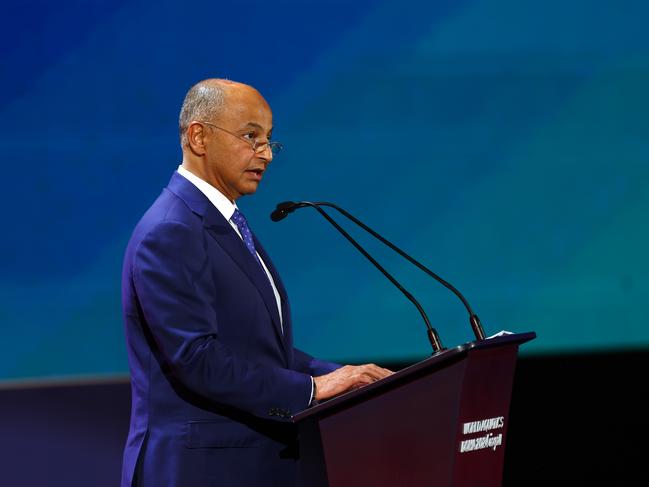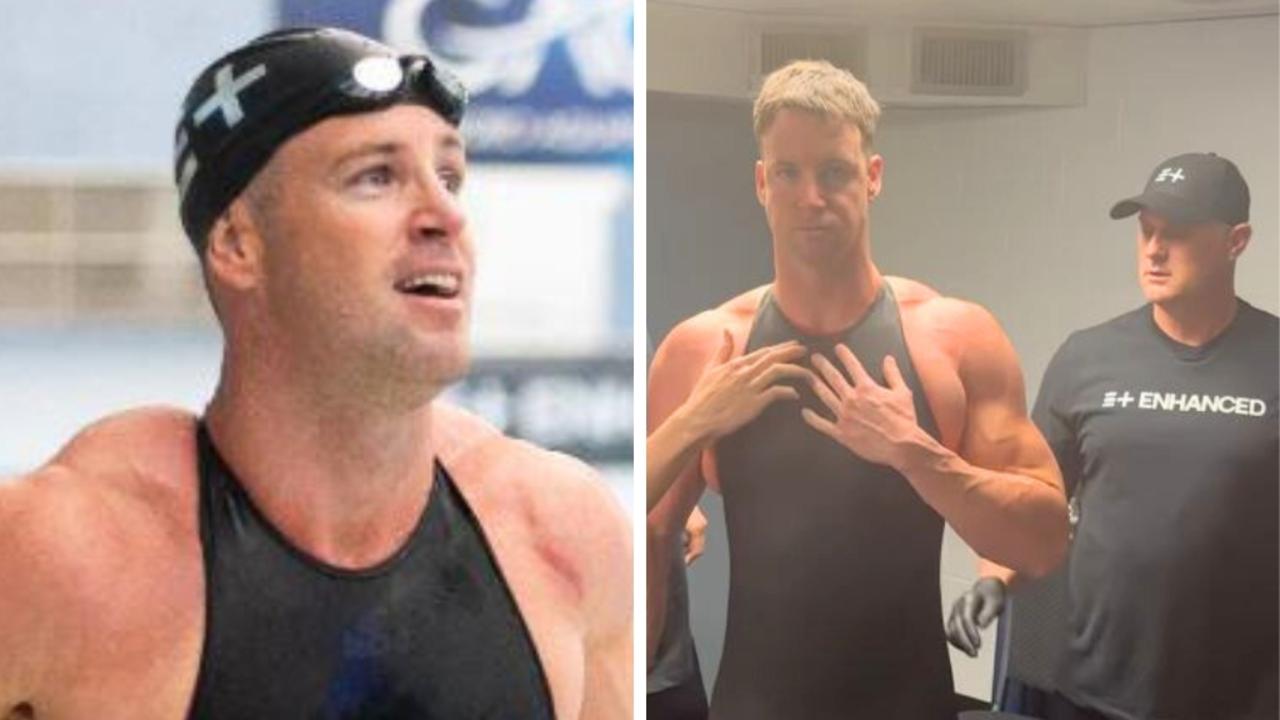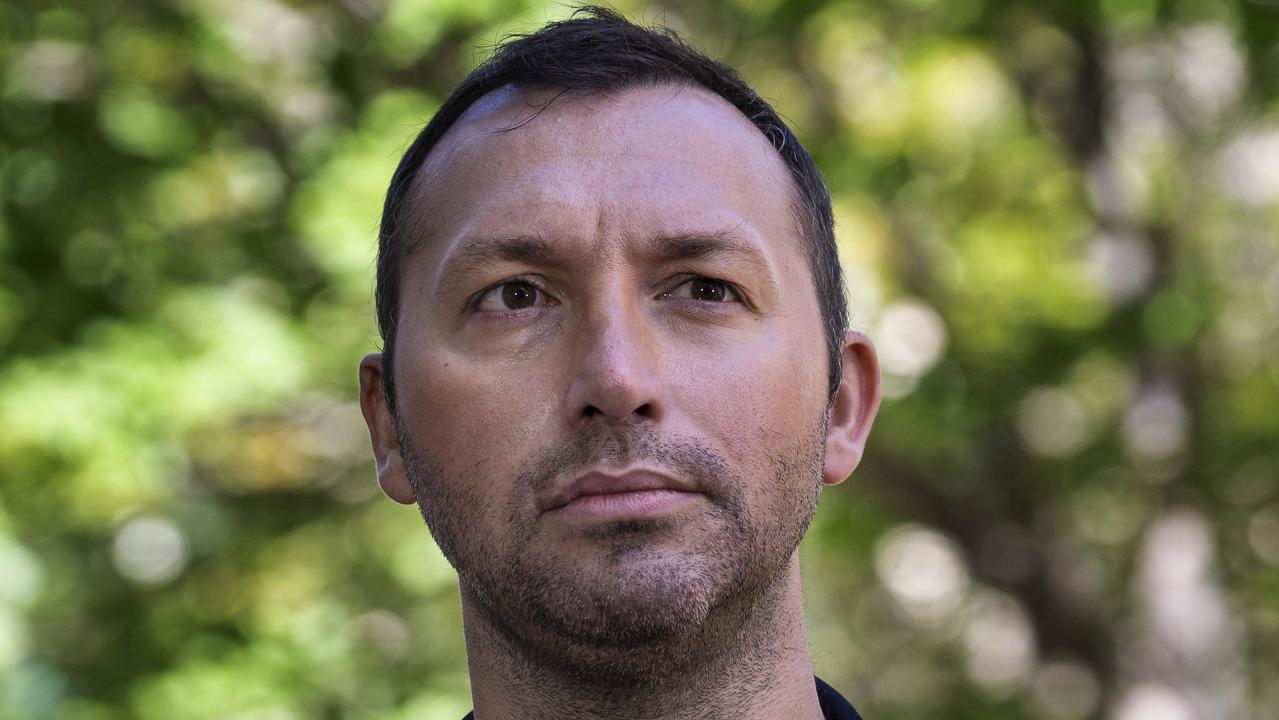Australian athletes and coaches threatened with life bans over involvement in the Enhanced Games
In a blunt warning to those considering joining the so-called ‘Steroid Games’, World Aquatics become the first international federation to ban anyone who signs up for the controversial event.
Olympics
Don't miss out on the headlines from Olympics. Followed categories will be added to My News.
Australian Olympic swimmers James Magnussen and Brett Hawke are facing the prospect of a blanket life ban from the sport they once excelled in after the global governing body announced it would blacklist anyone involved in the promotion and use of performance-enhancing drugs.
In a blunt warning to anyone considering taking part in the ‘Enhanced Games’, World Aquatics has become the first international federation to ban competitors, coaches and officials who sign up for the controversial event.
At a high-level meeting in Switzerland, World Aquatics’ leaders voted to introduce a new bylaw, effective immediately, declaring: “individuals who support, endorse, or participate in sporting events that embrace the use of scientific advancements or other practices that may include prohibited substances and/or prohibited methods will not be eligible to hold positions with World Aquatics or to participate in any World Aquatics competitions, events, or other activities.”
Sources said other international sports were considering similar bans while key member federations, including Swimming Australia and USA Swimming, have been encouraged to adopt the same policy, which would effectively block anyone involved in the so-called ‘Steroid Games’ from ever setting foot on a competition pool deck again.
A longtime advocate for drug-free sport, Swimming Australia said it was strongly opposed to the concept of the Enhanced Games and remained committed to clean competition “at all levels of swimming”.
“We have tabled World Aquatics new bylaw to discuss at a Board meeting next week noting we all have a responsibility to uphold the values of clean sport, and to ensure a level playing field that prioritises athlete health and wellness,” Swimming Australia chief executive Rob Woodhouse said.
“This will continue to be our clear stance on this subject, in alignment and in support of Sports Integrity Australia, the World Anti-Doping Agency and the World Aquatics position on clean sport and integrity within sport.”
The Australian Olympic Committee, which has the final say on who gets to represent the country at the biggest sporting event in the world, has already been critical of the drug-friendly version being spruiked by Magnussen and Hawke.
The AOC already has a long checklist of requirements contained in its code of conduct, team membership agreements and ethical behaviour bylaws that participants need to meet in order for anyone to be picked.
Although no individuals or specific events were named in World Aquatics’ statement, its ruling followed last month’s announcement that the “Enhanced Games”, a privately funded venture promoting and encouraging the use of pharmaceutical drug use, would proceed in Las Vegas next year.

Magnussen, a double world champion and Olympic silver medallist in freestyle sprinting, has already publicly revealed he’s been pumping himself with banned steroids after he was paid to come out of retirement and take part.
And Hawke, who swam for Australia at the 2000 and 2004 Olympics and now lives in the United States, is also on board after being appointed head swim coach.
So far, only a small number of Olympic-level swimmers, mostly retired, have put pen to paper and signed up even though organisers are offering lucrative incentives for others to join, promising appearance fees, prize money and bonuses.
Elite swimmers who do not want to dope have also been invited to take part but none have taken up the offer, with some of the biggest names in the sport, including Australia’s multi-Olympic champion Ariarne Titmus, slamming the concept.
Under World Aquatics’ new bylaw, anyone taking part in the Enhanced Games would face suspension from international competitions, regardless of whether they cheated or not.

Organisers of the Enhanced Games claim their doping programs are “safe” and have accused sporting bodies of enforcing anti-doping policies that are “outdated and hypocritical”.
But international sporting bodies disagree, with the World Anti-Doping Agency describing the use of drugs in sport as ‘dangerous and irresponsible,’
“Over the years, there have been many examples of athletes suffering serious long-term side-effects from their use of prohibited substances and methods. Some have died,” WADA said.
US Anti-Doping Agency chief executive Travis Tygart described the Enhanced Games as “ a dangerous clown show, not real sport.
Originally published as Australian athletes and coaches threatened with life bans over involvement in the Enhanced Games


